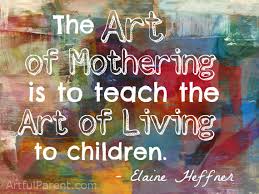I was a single parent for one month shy of four years – the first years of Isaac’s life. Prior to having a child, I’d considered getting a dog thinking I was finally ready to take on that weighty responsibility. However, just before I took that step, I took a pregnancy test. So much for the dog.
Fortunately, I had learned a vital lesson about responsibility, while in my early 20s.
I’d been floundering with an eating disorder for a five years. I’d sulked and skulked my way through college, therapy, churches, and friendships, looking for someone to rescue me from myself. I’d found no prince nor adoptive parents, and I was deeply depressed. I wanted to die.
My older friend, Judy, spoke to me in that dark time. She’d tried many ways to offer advice, but I’d parried her suggestions with excuses and sad stories that explained why I couldn’t possibly do the things she suggested: it was too hard, desperate, hopeless.
In frustration, she finally said to me, “Lora, you’re responsible for your own life!”
My copious tears dried on my face and I had an epiphany: I hadn’t chosen the cards I’d been dealt in life, but I was going to have to learn how to play them.
First, I needed to get into treatment for my eating disorder, and I would have to be resourceful. I didn’t have insurance or money; I went to my church and asked for help, and they gave it. I took out financing through the hospital.
There, they taught me I didn’t have to white-knuckle every hardship of life. Instead, I could use the tools of recovery that lay at my fingertips: picking up the telephone when I was struggling; going to meetings; reading inspirational literature; writing in my journal; doing service for others. Slowly, recovery happened for me.
I learned in my early days of discovery about this thing called “responsibility” – that being responsible did not mean I had to be alone. It simply meant that I was the only person who could pick up the tools and resources at my disposal and wield them for my own good. Other people could be resources, and, in fact, they had to be resources when I was at the end of my rope. I was the one who needed to assess just where I was on my rope and seek the level of support that ropey place required. And, if the first person – or first 10 people – I asked for help were not able to give it, even if they said “no,” then it was my job to keep asking, until I got what I needed. They had every right to say “no,” and I had the responsibility to do everything in my power to get healthy.
These are the lessons I drew upon when I found I was going to be a single parent.
So when Isaac slept poorly and I still had to work the next day, I called friends I could vent to. I let them in on the dark places in my mind, and in so doing shone a bit of light in there. On one particularly bad day (after a really bad night), I asked a couple of friends if someone could stay with me and help me with the baby: I was afraid I would hurt my child. No one could come, but by the end of those calls, I felt more connected with humanity and my own ability to be a loving parent.
As a mother, I need to show up to the fullest of my ability with Isaac because I’m his one chance at a good childhood. I don’t get to hit him or scream at him because I’m tired or stressed. It’s my job to tap into and sum-up all the many resources at my disposal in order to be the parent he needs me to be. And so, I do. I learn that together with so many loving people in my life, we can do what I could never do alone. I am 100% responsible for the kind of parent I am, but I am never alone in how I become a good parent.

